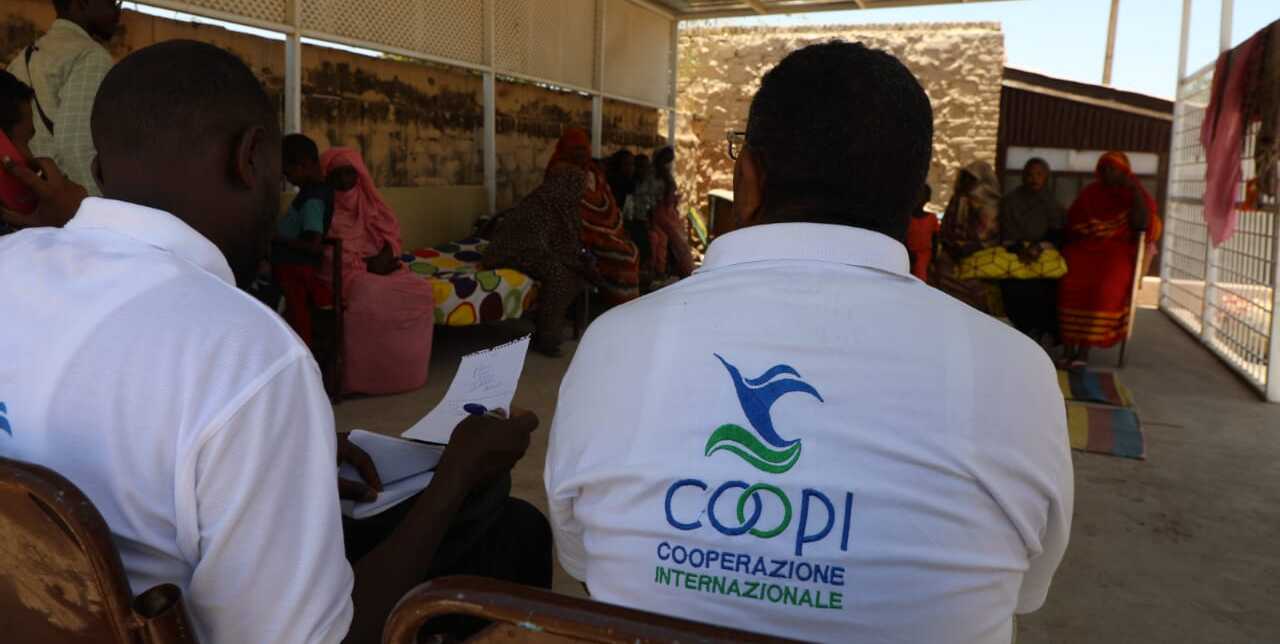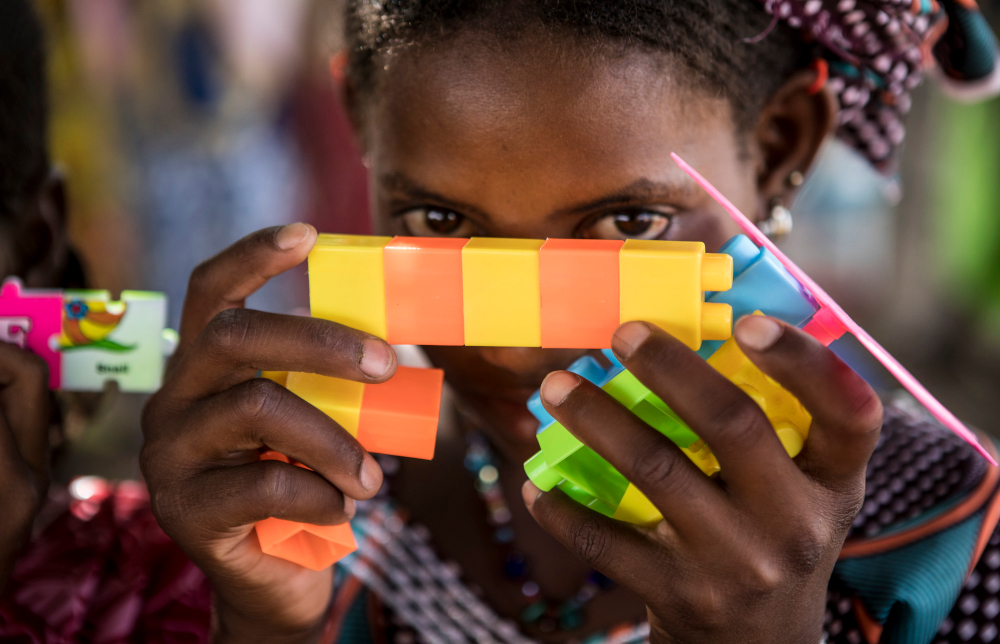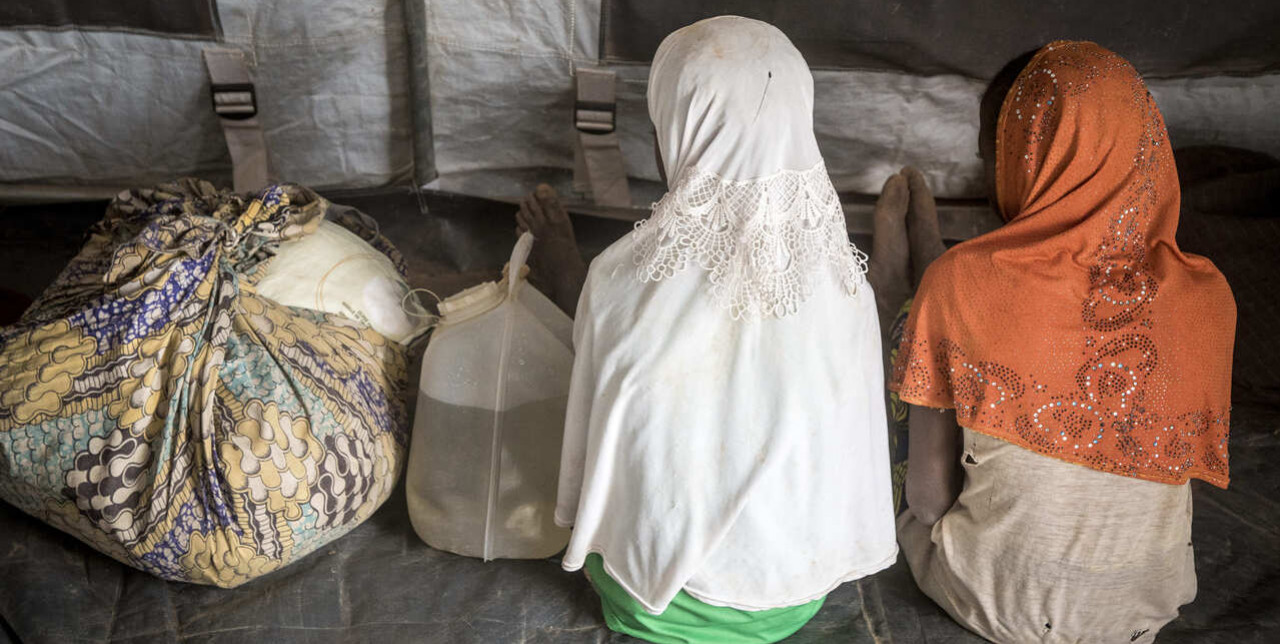29-05-2023 | di COOPI
Sudan crisis. COOPI for 35 thousand refugees in Chad and Sudan
Since the conflict in Sudan between the Armed Forces and the Rapid Support Forces erupted on April 15, 2023, more than 1,400,000 people have fled the capital Khartoum in the direction of safer places, such as Gedaref in the east of the country, on the border with Ethiopia or in Chad, on the border with Darfur. These are the places where, thanks to its historical presence, COOPI-Cooperazione Internazionale is providing humanitarian assistance to 35,000 people in extreme need, especially women and children. In Gedaref, Sudan, COOPI has started the distribution of food baskets, materials to make shelters and the monitoring of water potability; in Zabout, Chad, COOPI is working to provide services and sanitation kits, places and campaigns for psycho-social welfare and the protection of women and children.
The response in Gedaref, Sudan.
The average number of displaced people arriving in Gedaref each day is 2,500. They have lost everything and no longer have sources of income. The banking system is down and in the remaining open markets, commodities are scarce as prices continue to rise.
COOPI staff met with displaced people housed in the four settlements set up in the city of Gedaref: Gedaref University, Haj Hassan Institute, Omer Ibn Abdulaziz Complex, and the youth center. The population highlighted the most pressing needs on which COOPI organized its emergency response: food, decent shelter, and clean water.

Andrea Lorenzetti, head of mission for COOPI Sudan, explains:
700 of the most vulnerable families will begin receiving a food basket that includes 5 kg of flour, 1 kg of rice, 2 kg of lentils and 2 liters of cooking oil. The basic necessities have been selected in collaboration with the emergency working group and the government, based on the needs found in the population, the accessibility of these products in the market, nutritional needs and shelf life.
He adds:
Having shelter is essential to protect personal safety and security as much as possible, to protect oneself from the climate and its changes, to preserve one's health, but also to ensure human dignity and to sustain family life in extremely precarious circumstances. Therefore, we are in the process of distributing materials to build emergency shelters, such as tarpaulins and mats, in coordination with the Local Community Initiatives Working Group and the Sudanese Humanitarian Aid Commission.
Lorenzetti concludes:
COOPI is beginning to monitor water quality, at the four temporary water collection points, in cooperation with the state water board and the Ministry of Health. Test results will be shared with relevant government departments, followed by daily updates and other relevant coordination meetings to identify solutions if contamination is detected.
The conflict between Military and Rapid Response Forces has shattered an already precarious system, preventing the population from accessing basic services and goods, especially for people who have been forced to displace. COOPI has been an active participant from the beginning in the humanitarian working group, which includes the local government, Sudan Humanitarian Aid Commission, UN Agencies, local initiative groups and volunteers to carry out a coordinated emergency response plan.

The response in Zabout, Chad.
Since the beginning of the conflict, 90 thousand Sudanese, particularly from the Darfur region, have poured into Chad. COOPI has chosen to intervene in the Department of Adè (Sila Province), where, according to the prefect met on May 31, more than 23 thousand refugees had reached the territory, more than 90 percent of whom are women and children and 15 percent are people with special needs.
This is a number that is destined to grow; for this reason, the coordination of humanitarian and state actors responding to the crisis, in which COOPI is intervening, has established the opening of a new refugee camp in the vicinity of the village of Zabout, 45 km from Goz Beida. At that site, intended to accommodate up to 25,000 people, COOPI has been mandated by the UN High Commissioner for Refugees to provide Protection, Water and Sanitation services.
COOPI Chad Head of Mission Valeria Presciutti explains:
Thanks to the COOPI Emergency Fund, we will start building two "Child Friendly" Spaces, equipped with gender-differentiated sanitation facilities, raised above the ground (in anticipation of the rainy season) and accessible for the handicapped. In these Spaces, we will organize playful-recreational activities involving mothers, to promote both their well-being and that of their children after the traumatic experience they have gone through. We will also carry out an awareness campaign against child maltreatment, child abuse or exploitation and for peaceful cohabitation. We will launch awareness-raising messages in the various areas of the camp to make children and adults aware of the risks of violence, give them the keys to prevention, and know who to turn to in case of abuse.
To improve sanitation conditions, COOPI's first intervention includes the construction of 5 latrine blocks with showers and the distribution of:
- 850 personal hygiene kits, containing 1 water container with lid, 2 canisters for carrying water, a plastic basin for washing clothes, detergent and soap
-
850 kits to support the menstrual health of women and girls containing soap, reusable and disposable sanitary pads, a roll of black bags, a solar flashlight, and a whistle to make access to latrines easier and safer at night;
-
300 household water treatment kits including 2 water collection canisters, a metal stove, a large kettle, a cloth for filtering, a container with lid and tap for containing and storing treated water, and chlorine tablets for washing and sterilizing items.
In addition, COOPI staff will carry out a campaign on the proper use of water, good hygiene practices, and solid and human waste management through the active involvement of the entire community and "door-to-door" action by properly trained local workers; in this way, diseases such as cholera and diarrhea can be prevented.
COOPI has been in Chad since 1994 with food security, protection, and education projects. For some years now, the country has been facing multiple crises that aggravate an already difficult situation due to poor infrastructure, scarce resources, and attacks by armed groups. In addition to this, climate change, land depletion and the resulting increase in food insecurity and malnutrition are major challenges posed to a country in the midst of political transition. Nevertheless, Chad is the leading country in central and northern Africa in terms of the number of refugees received on its territory.
The opening photo and the photo of the little girl were taken by Dicko for UNICEF as part of a COOPI project




 Chad
Chad